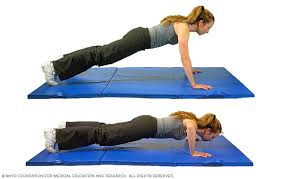What Your Cravings Mean and How to Satisfy Them
Ever find yourself standing in front of the fridge, eating pickles straight from the jar and wondering why you’re doing it? Or maybe you’ve been hit with a sudden craving for a hot dog smothered in mustard. While these cravings may seem strange, they actually tell us a lot about our bodies and what they need. In this blog post, we’ll explore some common food cravings and what they mean. We’ll also give you some tips on how to satisfy your cravings in a healthy way. Keep reading to learn more!
Most of us have had a sudden, intense craving for a specific food at some point or another. But what does it mean when we get these cravings? And how can we satisfy them in a healthy way? Let’s take a closer look.
One of the most common food cravings is for something salty. If you find yourself reaching for the chips or pretzels more often than usual, it could be because your body is low on sodium. However, satisfying your craving with junk food isn’t the best idea. Too much salt can lead to high blood pressure, so it’s important to get your sodium fix from natural sources like nuts, seeds, and fish. Another option is to add some flavor to your food with herbs and spices instead of resorting to the salt shaker.
Sweet cravings are also quite common. If you’re suddenly jonesing for something sugary, it could be because you’re dehydrated. When our bodies don’t have enough water, we tend to crave sweets because they give us a quick burst of energy. The next time you’re feeling a sugar craving coming on, reach for a tall glass of water first and see if that does the trick. If not, try satisfying your sweet tooth with fruit instead of candy or cake. Fresh berries, melon, and pineapple are all great options that will give you the sweetness you’re looking for without all the sugar crash that comes afterwards.
We’ve all had that moment where we can’t stop thinking about a certain food until we finally give in and eat it—even if we’re not really hungry. These types of cravings are usually less about physical hunger and more about emotional needs. If you find yourself in this situation, it’s OK to indulge your craving once in awhile. Just be sure to pay attention to your portion sizes and make healthy choices most of the time. Overeating comfort foods can lead to weight gain, so it’s important to enjoy them in moderation.
Next time you have a sudden craving for something specific, take a moment to think about what your body might be trying to tell you. Is it thirsty? Tired? Stressed? Once you’ve pinpointed the cause of your craving, satisfy it in a healthy way that won’t leave you feeling guilty later on. Your body will thank you!
Why do I crave pickles and mustard? Pickles are high in sodium (salt is added to the brine in order to preserve them—and make them extra tasty, of course). And sodium is an important electrolyte. These minerals help to keep your body hydrated. So when you’re craving something salty, it could be because your body is in need of a hydration boost.
Is mustard good for weight loss? Although eating mustard is not going to cause you to drop 20 pounds, adding the tasty condiment to your weight loss plan may give your body an extra fat burning boost. Several studies have concluded that some of the spices in mustard, such as capsaicin, can help you reach your goals.
What does eating mustard do for your body? Mustard is rich in protein, fiber, vitamin C and many of the B-complex vitamins. There are several health benefits of mustard for the body like relief from muscular pains, ringworm, and respiratory disorders and also helps in treating cancer and diabetes.
Is a spoonful of mustard a day good for you? Mustard is good for you because it contains several antioxidants that provide various health benefits including anti-cancer, antibacterial, antiviral, antifungal, anti-inflammatory, and wound-healing properties.
Why do I crave pickles and mustard? – Additional Questions
Is mustard good for your liver?
Mustard oil is a very potent stimulant, and can help the liver and spleen produce increased levels of digestive enzymes, which can increase the speed of digestion and body’s metabolic capacity.
Is mustard good for kidneys?
Mustard is an excellent kidney friendly diet condiment. So many seasonings and condiments are loaded with fat and sodium. One teaspoon of yellow mustard contains only 25 to 65 mg sodium.
What happens if you eat a spoonful of mustard?
Eating mustard seeds, leaves, or paste is generally considered safe for most people, especially when consumed in amounts typically found in the average person’s diet. That said, consuming large amounts, such as those typically found in mustard extracts, may result in abdominal pain, diarrhea, and gut inflammation.
How much mustard should you eat a day?
Science suggests a heaped teaspoon of mustard a day.
Does a teaspoon of mustard lower blood pressure?
Mustard can be part of the Dietary Approaches to Stop Hypertension, or DASH, diet, which is an eating pattern to lower high blood pressure, according to the 2010 Dietary Guidelines from the U.S. Department of Health and Human Services.
Is mustard good for your heart?
Mustard is a good source of omega-3 fatty acids which are proven to improve risk factors for heart attacks, such as: reducing blood pressure, raising HDL (‘good’) cholesterol levels, and reducing arterial plaque and inflammation.
Is mustard an anti inflammatory?
“Mustard seeds contain phytonutrients known as glucosinolates,” Dr. Deepa Verma says. “These substances break down to produce isothiocyanates. All these antioxidants are powerful in reducing chronic inflammation.” Inflammation, in case you didn’t know, is suspected of playing a major role in chronic disease.
Does eating mustard lower blood pressure?
*A number of nutrients present in mustard seeds like copper, iron, magnesium and selenium also assist in the treatment of blood pressure. *Mustard seeds are also known to be beneficial for asthma patients.
What type of mustard is healthiest?
The main differences are health-related, but these are in such small quantities that it may well prove negligible to make a decision between Dijon and yellow mustard due to health concerns. Yellow mustard has lower sodium content, but other than that, there is no further difference in terms of healthiness.
What is the unhealthiest condiment?
Unhealthy condiments to limit
- Ranch dressing. Ranch dressing is high in calories with 2 tablespoons (30 ml) providing 129 calories.
- Fat-free salad dressing.
- Barbecue sauce.
- Pancake syrup.
- Queso.
- Margarine.
- Teriyaki sauce.
- Artificial sweeteners.
Can you eat too much mustard?
Even if you’re not allergic, too much mustard can leave mustard irritants inside your body. In worst case scenarios, you could have so many mustard irritants inside you that you could suffer from asphyxia, which is the same effect people with peanut allergies get if they eat peanuts.
Why does mustard help leg cramps?
The body uses acetic acid to produce acetylcholine, which is essential for leg muscle contractions. This is why mustard is effective for leg cramp relief. Mustard contains acetic acid. Yellow Mustard is the only kind of mustard documented to relieve nighttime leg cramps.
Why do runners eat mustard?
Context: Some athletes ingest pickle juice (PJ) or mustard to treat exercise-associated muscle cramps (EAMCs). Clinicians warn against this because they are concerned it will exacerbate exercise-induced hypertonicity or cause hyperkalemia.
Is mustard good for pain?
Consuming one or two teaspoon of yellow mustard powder can help in maintaining strong bones, joints and muscles as it is a good source of potassium and calcium. Mustard oil made from yellow mustard seeds helps to get quick relief from any kind of pain, including arthritis pain.
Is mustard good for dehydration?
Some have theorized that the electrolytes in mustard, specifically sodium and potassium, can prevent leg cramps after exercise. However, a study in nine healthy adults found that consuming mustard after a 2-hour bout of exercise did not fully replenish electrolyte losses due to sweating and dehydration ( 4 ).
What drink stops leg cramps?
It’s been suggested that drinking 2 to 3 ounces of tonic water before bedtime can prevent leg cramps at night.
Does mustard help with foot cramps?
Taking mustard on a regular basis does not prevent cramps , taking mustard can and often does terminate the cramp at the time. Cramps can occur because of one or a combination of the following factors: fatigue, overuse, dehydration and nutrient deprivation.




